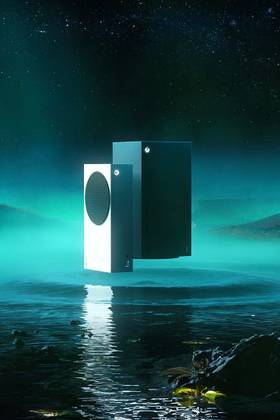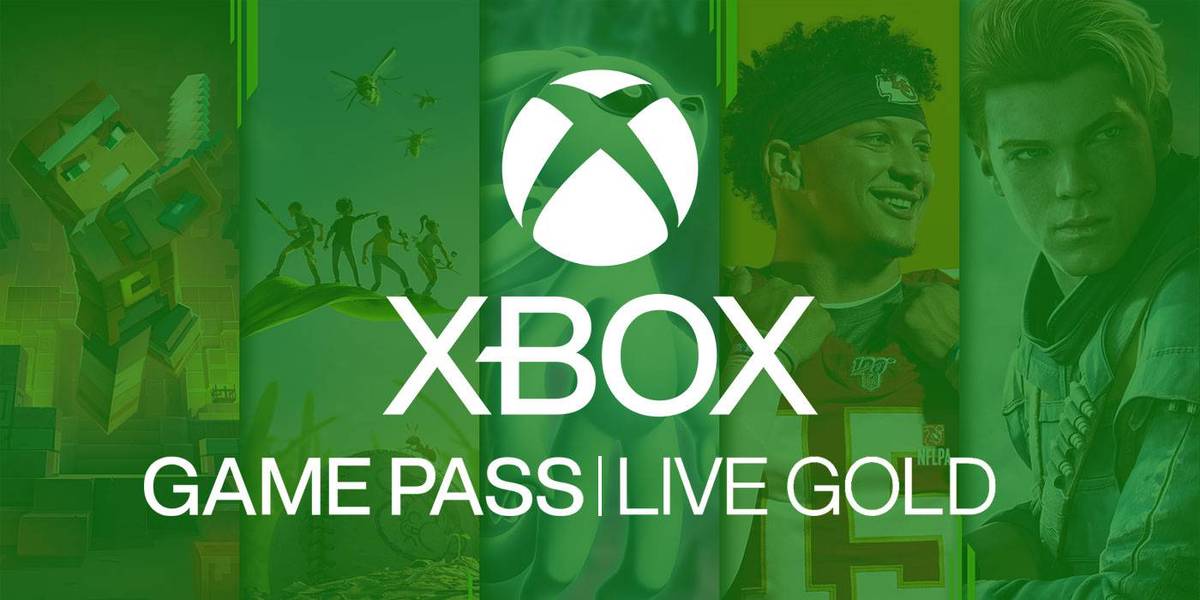Xbox Game Pass's Success Is Thanks To One Simple Reason That Amazon Still Doesn't Understand
Executives have consistently shown themselves to be wildly out of touch when it comes to understanding consumers in the video game market, and a misguided analysis of Amazon Luna’s failure to compete with Xbox Game Pass, along with the Twitch gaming store’s failure to topple Steam, provides a perfect illustration of this. At the time Luna launched, Game Pass was an outstanding value, with hundreds of quality games at a low price. Steam’s available games are in the tens of thousands, and the idea that fans would prefer to buy from a store attached to Twitch is fundamentally demeaning and condescending.
There are valid reasons to select Good Old Games as one’s digital storefront of choice, since GOG’s DRM-free policies preserve games, and nothing beats Steam in the sheer number of options available. Amazon purchased Twitch, then assumed fans who used Twitch would buy games there over alternative storefronts, which is a baffling leap in logic. Even in the company's post-mortem analysis, while executives may recognize a failure, they rarely realize why a service, or a storefront, fails. Steam provided more options, and Game Pass provided more value. These are simple truths that consumers recognize, but executives remain blind to, seeking alternative explanations.
Xbox Game Pass Offered Amazing Value When It Grew Its Fanbase
Luna+ Offered An Inferior Value Proposition, Even At Its Initial Discounted Rate
When Amazon Luna launched for Prime members, it offered its Luna+ subscription service for $6 USD per month. Even at that price point, Luna+ offered an inferior value proposition to Game Pass or PlayStation Now, the predecessor to PlayStation Plus Premium. In a post on LinkedIn, Ethan Evans, the former VP of Prime Gaming for Amazon, discussed the company’s inability to compete with Steam, and the failure of Amazon Luna. While it is fine to admit mistakes, the supposed “lessons” he learned that he shares with other executives are all the wrong ones. Evans fails to recognize that value matters.
An essay like the one Evans provided on LinkedIn is purely aimed at other executives. It perpetuates the myth that companies can crack a "code" to manipulate customers into purchasing products, instead of competing based on cost and selection.
Amazon could not determine where Luna fit in with subscriptions, since it only had a library of a few dozen games, and did not offer local downloads. The cross-section of consumers who have the blazing fast internet needed for game streaming, but who lack a PC or console that can adequately run games locally, is exceedingly rare among dedicated gaming fans. While Game Pass and PlayStation Plus now offer streaming, local downloads are the go-to for most users. Both services offer far more games for the subscription cost than Luna+, making it an inferior value, dollar for dollar, in comparison.
In Evans’ statements about Twitch’s store failing as an alternative to Steam, Evans credited Steam’s success with the fact that Steam is “a store, a social network, a library, and a trophy case all in one.” A more likely reason is that Steam has tens of thousands of games to choose from, unlike Amazon’s storefront. If Amazon was selling the same games at steep discounts, more fans might have considered it, but prices have remained roughly equivalent across all digital storefronts. Executives consistently aim to socially engineer their way around actually offering the consumer a superior value over the competition.
Luna Still Fails To Compel Fans To Open It, Much Less Pay For It
Amazon's Twitch Game Store Also Offered No Financial Incentives To Switch
The Luna controller has a quality build, and those who are already Amazon Prime subscribers have access to a few free games through the service each month, but it is a struggle to get Prime subscribers to use Luna at all, much less pay the additional monthly charge for Luna+, which has increased to $10. Game Pass is not the value it once was, due to its price hike and the elimination of yearly Xbox Live Gold purchases that could be converted to Game Pass Ultimate. It still offers more value at $20 per month for Game Pass Ultimate than Luna+.

Valve Might Be The Best Hope For The Future Of The Gaming Industry
While Valve has had its share of controversies, Steam still stands as a surprisingly consumer-friendly option with a positive impact on the industry.
Evans sidesteps whether Luna+ provided genuine value for consumers and wildly misses the mark on the enduring popularity of Steam. If he had cited the Steam Deck as the storefront’s champion, incentivizing purchases within the Steam ecosystem to take full advantage of the outstanding (and reasonably priced) portable, it might have shown some actual insight regarding gaming fans. Trying to cite “social network” and “trophy case” as reasons the smaller company, Valve, outdoes larger companies like Amazon and Google, is incredibly patronizing towards the gaming consumer by assuming they do not actually weigh purchases based on options and value.
Executives badly want to believe that some combination of marketing and community building can sidestep offering consumers superior value.
It is a constant struggle for Game Pass to justify its price, and when it succeeds it is by adding a large variety of quality games, including new and day one releases. Most subscribers are not paying the fee for the community surrounding Game Pass, or the trophies, but because it offers superior value over buying individual games outright. Similarly, Steam’s massive library, and its smooth synergy with the Steam Deck, makes it an attractive storefront, not the community, the culture, or the digital baubles awarded to players. Options and value matter to video game fans, not corporate buzzwords.
Unlike Game Pass, Amazon Fails To Recognize That Cost & Value Still Matter
Selection And Price Matter, But Executives Desperately Want To Find A Workaround
In its early days, Amazon succeeded by offering a cheap, convenient alternative to bookstores. Amazon runs Luna controller sales periodically, but its subscription service doesn't receive any discounts or annual rates. If Amazon wanted Luna+ to succeed, it could have made it cheaper, or better. If the company wanted its Twitch game store to beat Steam, it would have to beat Steam on selection, or prices. Amazon could never hope to do the former, and it chose not to do the latter. Executives badly want to believe that some combination of marketing and community building can sidestep offering consumers superior value.
If a new digital storefront offered recently released games at half the price they're listed at on Steam and other established platforms, few consumers would let their love of "community" or "trophies" hold them back from saving money.
Some digital storefronts tried to build an audience based on full-priced exclusives, and failed. Most consumers aren’t likely to invest in a console that has only one game they would ever play, or to download a storefront app that has only one game they want to buy. Amazon already tried to piggyback off the community of Twitch to launch its storefront, instead of giving gamers a financial reason to care. Somehow, Evans still presents baffling takeaways from this failure. Luna+ could still find relevance as a subscription service, but it needs to compete with Xbox Game Pass based on value.
Source: LinkedIn

- Brand
- Xbox
- Original Release Date
- November 10, 2020
- Hardware Versions
- Xbox Series X/S, Xbox Series S
- Original MSRP (USD)
- Series X priced at US$499 and the Series S priced at US$299
- Weight
- 9.8 lb
Xbox Series X and Xbox Series S are two consoles Microsoft released in November 2020. Like most Xbox models, the Xbox Series X/S was the main competitor to the PlayStation 5. The consoles were the successors to Microsoft’s Xbox One line. While the PS5 and Xbox Series X are comparable interns of graphics, the Xbox Series S provides less powerful graphics around 1080p-1440p and does not contain a disc drive.









